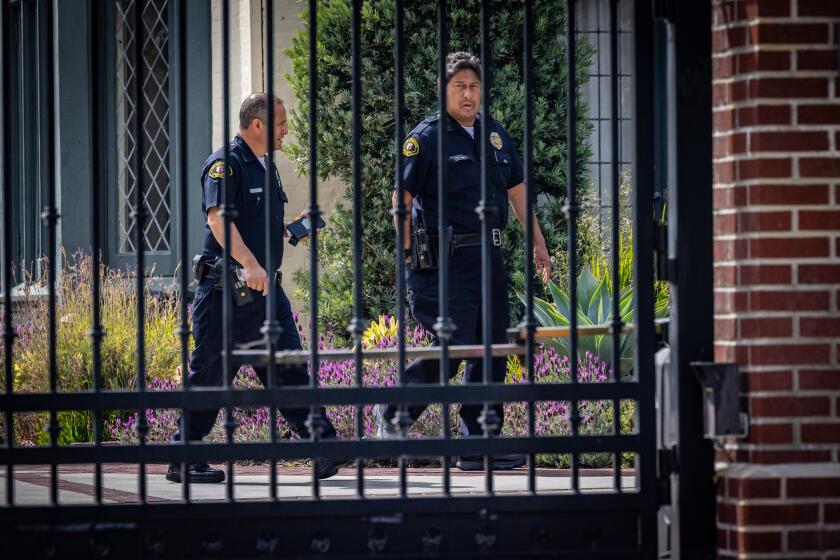UCLA won’t discipline creator of controversial video, who later withdraws from university
UCLA announced Friday that it would not discipline or further investigate the student who released a controversial online video in which she complained about Asian students’ behavior and mimicked an Asian language.
But later in the day, the student, Alexandra Wallace, announced that she was withdrawing from UCLA because of death threats and because she had been “ostracized from an entire community.” In a statement released to the Daily Bruin, UCLA’s student newspaper, she apologized for offending Asians and called the video a mistake.
Wallace’s three-minute video had triggered a national discussion about racial stereotyping and what authority, if any, colleges have over students’ speech and opinions.
Before the young woman’s withdrawal statement, free speech experts had praised UCLA’s decision not to discipline her and said other universities increasingly face such incidents in the Internet age.
Administrators’ decision to drop the probe came with a scolding for Wallace. “While we were appalled and offended by the sentiments expressed in the video, we have uncovered no facts to lead us to believe the student code of conduct was violated,” UCLA spokesman Phil Hampton said.
UCLA’s conduct code prohibits students from making threats and bans racial or sexual harassment so severe or pervasive that it impairs another’s participation in campus life. The video by Wallace, a third-year political science major, did not do that, Hampton said. He declined to comment on her withdrawal.
In her video, posted a few days after the Japanese earthquake, she complained about “hordes” of Asians enrolling at UCLA and said they had interrupted her library studies with cellphone calls about the tragedy in Japan.
Wallace could not be reached for an interview Friday. In her statement to the Bruin, she expressed deep regret. “Especially in the wake of the ongoing disaster in Japan, I would do anything to take back my insensitive words. I could write apology letters all day and night, but I know they wouldn’t erase the video from your memory, nor would they act to reverse my inappropriate action.”
Hampton said UCLA police were investigating the threats against Wallace and that she had been given a secure way to take her final exams this week.
Adam Kissel of the Foundation for Individual Rights in Education, a free speech group, said UCLA had the right to open an investigation but should have dropped it more quickly. “What UCLA probably should have done is take three minutes to watch the video and take another other three minutes to conclude the speech was protected,” he said.
Students always have said nasty things about one another, but the Internet now allows everyone to see that, Kissel said. So “out of misplaced desire to protect students from perhaps crass conversation,” schools are overreacting and violating free speech, he said.
UCLA law professor Eugene Volokh, an expert on the 1st Amendment, said the campus was wise to back off. “This woman expressed her opinion, an offensive opinion to be sure,” but did not advocate violence or harass anyone, he said.
Earlier, several students said they were disappointed the campus did not plan to take action against Wallace.
Layhannara Tep, a Cambodian American who is director of the Asian Pacific Coalition student group, said Wallace should have been asked to take an ethnic studies or history class that would expose her to other cultures. Tep and others criticized UCLA for not requiring all students to take at least one such class.
Two other Los Angeles-area universities have grappled recently with similar issues.
At Cal State Long Beach, a student newspaper article ridiculed a recent Native American cultural festival. Campus President F. King Alexander said Thursday that the writer’s opinion, while allowed under free speech, does not have university support.
At USC, a crude Internet message advising young men how to take advantage of women has circulated among fraternities and beyond, triggering outrage. The message originated outside USC, but the university’s chapter of Kappa Sigma, the fraternity to which it was sent, has been suspended during an investigation, officials said Friday.
More to Read
Start your day right
Sign up for Essential California for news, features and recommendations from the L.A. Times and beyond in your inbox six days a week.
You may occasionally receive promotional content from the Los Angeles Times.







